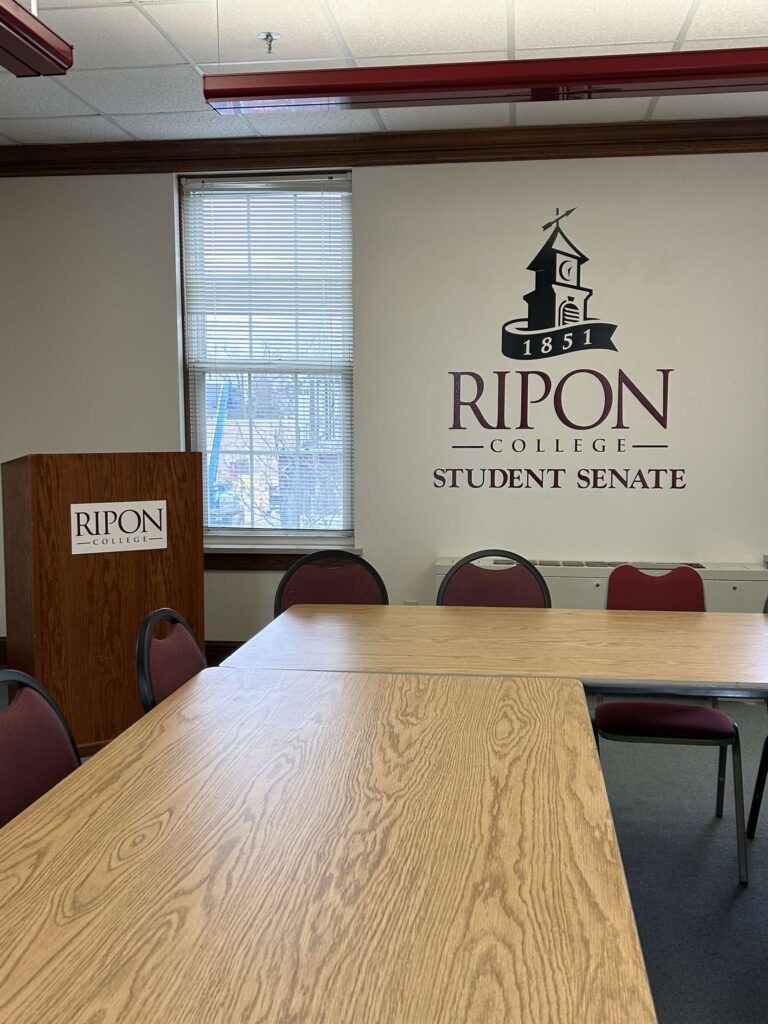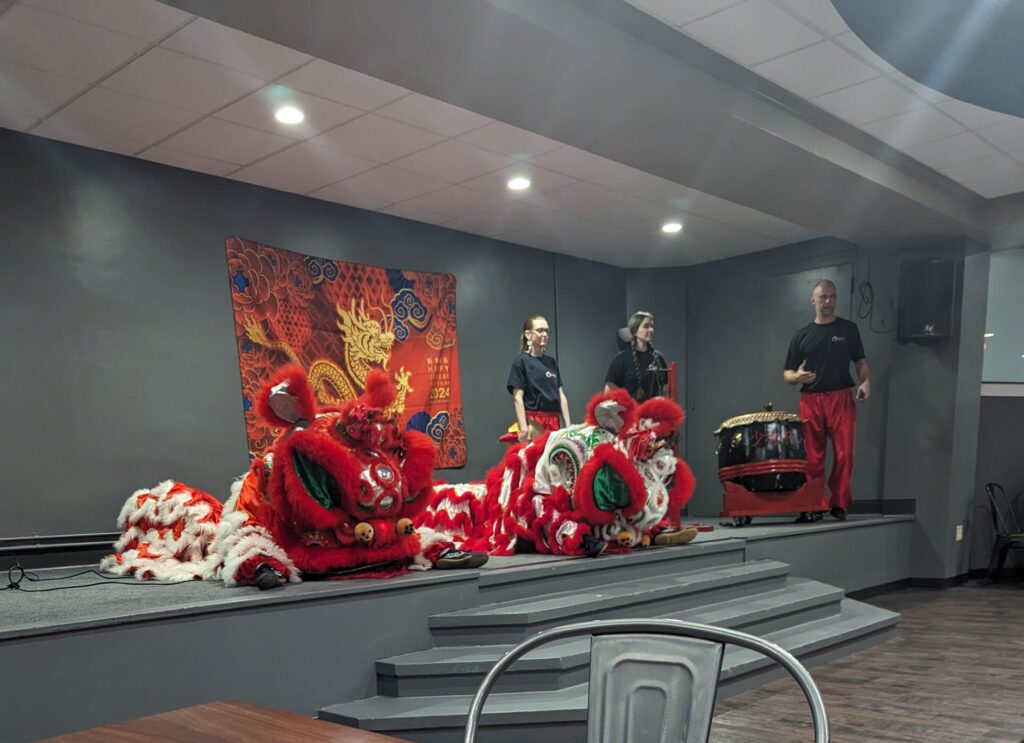By Caitlin Marsch in College Days, Feature Story, Student Life on March 21, 2024
A talk with Student Senate Treasurer Levi Keen about the OneFund
The OneFund is a pool of money that student groups can use to pay for activities, such as hosting events on campus, and the usage of it is voted on by Student Senate representatives. College Days sat down with student Senate Treasurer Levi Keen to find out more about what the OneFund is and how it works.

The student senate chamber where the senate meets, on Wednesdays at 6:30 pm. Photo Courtesy of Rachel Reger.
Q: Where does the OneFund come from?
A: It’s a giant slush fund, is the best way to put it. Every year we get activity fees that come in. This year I think it was 155 thousand (dollars), maybe a little more. And then that creates a big pool of money and then this initial pool of money is split. So we give some money to intramurals, we give some to Res Life. There’s a lot of little things in there that have always been there. Basically, a bunch of stuff gets taken out of the big pot. And then whatever’s left after taking all that stuff out and then also taking money out for the budgets of individual clubs (is the OneFund). You also have rollover of anything from the last semester. All the money that each club didn’t spend as part of their budgets will roll over.
Q: Did the pandemic affect the OneFund?
A: What happened was, with COVID, we’ve artificially built it up, so we had two years, 2020 and 2021, where we really didn’t spend a lot because there wasn’t a lot to spend on, unless you want to go to a virtual Kesha concert, that was really the only big thing that was happening. It just kept building up and getting to a ridiculously large number when traditionally before 2020, if you look at where we ended for the past couple years, we’ve always ended up usually below 50k.
Q: How is the OneFund doing right now?
A: Is it unusually low right now for the past four years? Yes. But if you take COVID into consideration, it’s really not. It’s not a super big cause for emergency. Whenever I’ve been treasurer, we’ve had a lot of money. So I’ve always been in the position that it’s better to encourage people to spend money on things and do stuff. If the money is low, it can be seen as a bad thing. It’s also a good thing because it means that clubs are doing more than they used to. And we’re having more activity on campus and that we’re getting back to normal. It’s kind of like a two-edged sword. We don’t want the money to get too low. We don’t want the money to be too high. Personally, I am not as worried about the OneFund compared to some other people. That’s 80 thousand (dollars), but I can’t think of anything we’re going to spend 80 thousand dollars on in the near future, because all the big expenses that we’ve had in the past have already been brought up to the Student Senate.

The Shaolin Center Lion dance team at the Lunar New Year event hosted by ASA. This was one of the many events funded with money from the OneFund. Photo Courtesy of Caitlin Marsch.
Q: How can you increase the chances of a OneFund getting passed?
A: Planning ahead is what makes it work. You can submit a OneFund on Wednesday at four o’clock, and exactly a week later, it’ll be on the agenda to be approved. One of the things we’re looking at is maybe extending that, like you have to have it on there for three weeks or maybe a month, with exception, because sometimes conferences come up. Especially those larger OneFunds, you shouldn’t be OneFunding for, like, $40,000 with a week’s notice.
Q: What influence does the treasurer and Senate exec have on a OneFund getting passed?
A: I don’t vote on the OneFunds. I don’t decide who gets the money. I just try to give everyone a better perspective on it, by asking the questions that they may not have the bigger picture information to ask. I guess I can be the bad guy a little bit, and ask the questions that some senators might be uncomfortable asking. Like, are you telling us everything you’re going to be spending the money on? And, did you actually plan ahead? Some people think that the exec board controls the Senate. All we really do is facilitate, and if you have a question about your budget, if you have a question about your supervision, or if you have a question about the minutes. We’re basically a resource for the students. We’re not figures of power.
Budgetary information, such as the current OneFund balance, and the weekly Student Senate minutes can be found on the MyRipon portal. Student Senate meetings are held on Wednesdays at 6:30 PM in the Senate chamber on the second floor of Bartlett Hall and are open to all students to attend.


